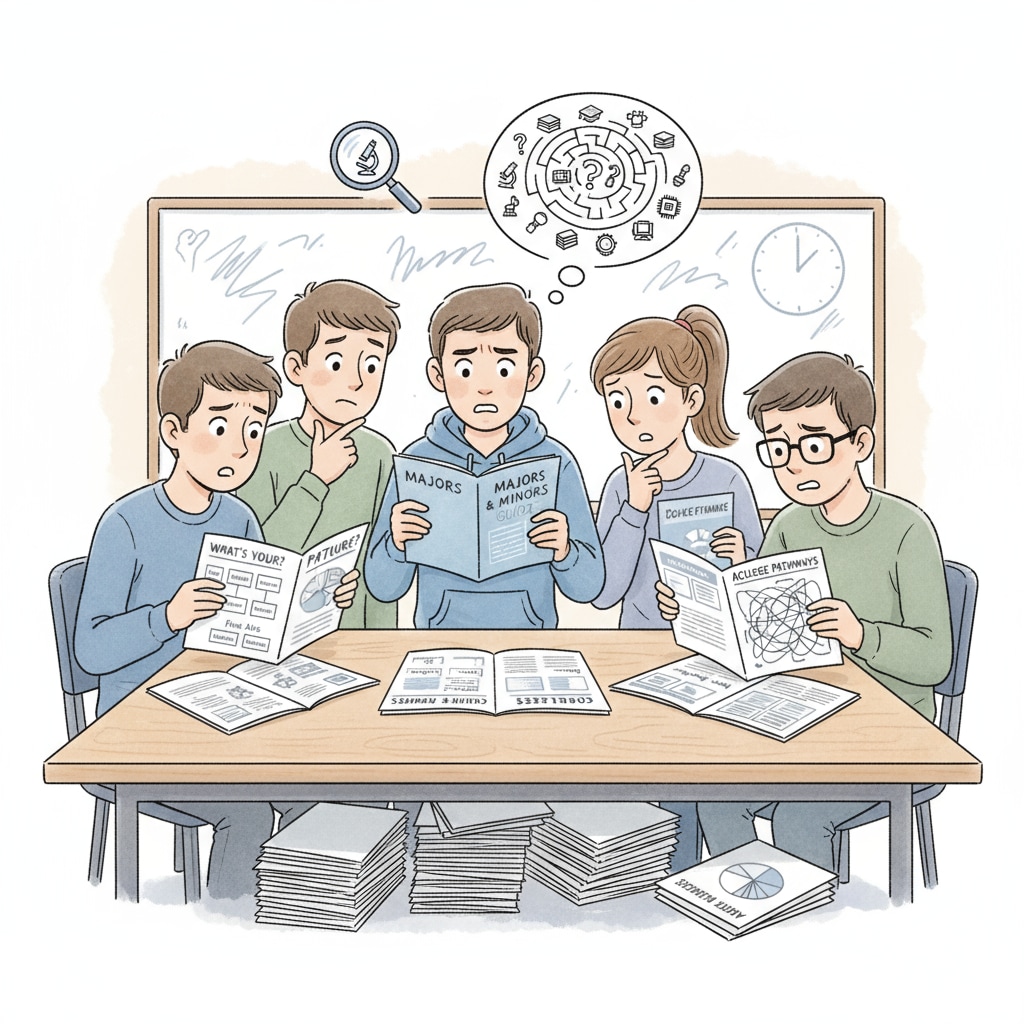University major selection, career planning, and interest exploration are crucial yet often perplexing aspects for high school students on the verge of entering college. As they stand at this crossroads, the weight of choosing the right major can feel overwhelming, with implications that extend far into their future careers.

The Quagmire of Major Selection
High school students often find themselves in a bind when it comes to choosing a university major. On one hand, they are bombarded with a plethora of options, each promising different career paths. On the other hand, they may have only a superficial understanding of these majors. For example, a student might be drawn to a major like “Computer Science” because of the current hype around technology. However, they may not be aware of the rigorous mathematical and programming courses that come with it. This lack of in-depth knowledge can lead to disappointment and regret later on. According to National Center for Education Statistics, a significant number of students change their majors within the first two years of college, indicating the initial uncertainty in major selection.

The Illusion of Interest
Interest is often considered a guiding factor in major selection. However, what seems like an interest at the surface level may not hold up under closer scrutiny. Many students confuse passing fancies with genuine interests. For instance, a student who enjoys watching medical dramas might think they are interested in a medical major. But the reality of long hours of study, intense internships, and the pressure of dealing with life-and-death situations in a medical career may be far from what they imagined. It’s essential to distinguish between fleeting interests and those that can withstand the demands of a particular field. American Psychological Association provides valuable insights on how to accurately assess one’s interests in the context of major and career choices.
To overcome these challenges, students need to engage in systematic career exploration. This involves a multi-step process. First, self-assessment is key. Students should take personality and interest tests to gain a better understanding of their strengths, weaknesses, and passions. Second, they should seek real-world exposure. This could be through internships, job shadowing, or volunteer work in fields they are considering. Third, networking with professionals in various industries can provide invaluable insights into the day-to-day realities of different careers.
Readability guidance: As we’ve seen, the process of choosing a university major is fraught with difficulties. By understanding the common pitfalls and taking proactive steps in career exploration, students can make more informed decisions. This will not only lead to a more fulfilling college experience but also set them on a path towards a successful career. In conclusion, careful consideration of university major selection, career planning, and interest exploration is the cornerstone of a bright future for high school students.


